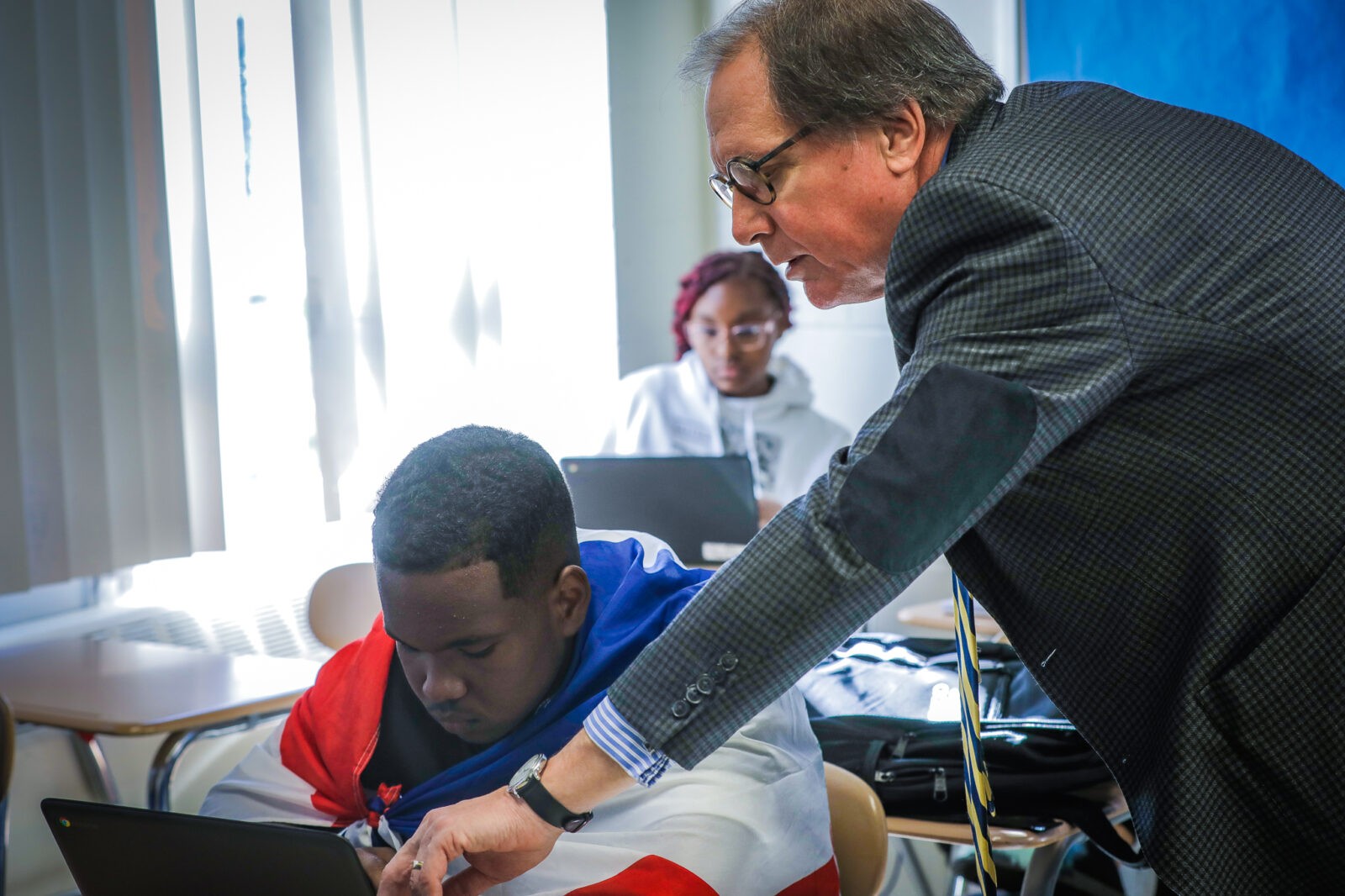High school counselors help navigate a challenging college application process

By Halima Moore
As a veteran high school counselor who has worked for over two decades in New Jersey public schools that primarily serve first-generation, low-income Black and Latino students, I am alarmed by the recent shifts in the college admissions landscape that present significant new hurdles for my students.
Delays and complications with the new FAFSA program, the reinstatement of SAT requirements by elite colleges, and the ban on affirmative action are making some students question if college is right for them.
Recent data indicates a significant drop nationally in the number of high school seniors completing applications to colleges, with figures falling dramatically from 1.5 million applicants in late January 2023 to just 700,000 by the same period the following year. This decline reflects growing skepticism among students and families about the college application process.
To adequately support historically disadvantaged students and ensure that they have a fighting chance for acceptance to and affordability of four-year colleges, counselors serving vulnerable student populations must be equipped with an expanded array of resources to tackle these obstacles effectively. We must anticipate the trajectory of a rapidly evolving landscape while also remaining flexible to adapt to changes, ensuring students receive optimal guidance and support.
While the FAFSA challenges may seem beyond our control, there are proactive steps counselors can take to make a difference. We must urge students and parents to take action early and become informed about their rights. This is especially important to immigrant families who may encounter obstacles when trying to contribute to an ongoing FAFSA process initiated by their child.
Ultimately, we must have comprehensive support systems in place to assist students and families in navigating the FAFSA process more effectively. This includes providing workshops and one-on-one assistance to ensure that all required documents are submitted accurately and on time.
The resurgence of SAT requirements by elite colleges is another challenge, particularly for low-income students of color. These standardized tests can serve as a barrier to entry, exacerbating existing inequities in the admissions process. In fact, in New Jersey, the SAT was taken by only 11% of Black students in 2023, contrasting starkly with the 40% of white students who took the test. Additionally, a mere 8% of those from the lowest family income quintile participated, while 50% from the highest quintile did so.
Just as the SAT reinstatement poses challenges, the Supreme Court decision to overturn affirmative action policies further limits opportunities for students of color in the admissions process. This decision perpetuates systemic barriers and reinforces the need for targeted support and advocacy for underrepresented students. For many counselors that serve students of color, this decision has impacted how we counsel our students in myriad ways, from college essay content to curating the right school list. As with the SAT reinstatement and the FAFSA delays, it has required a nuanced and personalized approach.
At my school, College Achieve Central in Plainfield, our mission is to equip our scholars for admission to top-tier colleges and universities. We require that scholars enroll in a minimum of three AP classes prior to graduation, and our college preparation initiatives and support begin as soon as they enter high school.
This support fosters meaningful relationships between counselors and students, cultivating a college-going culture where every student believes in their potential to pursue higher education. We provide a broad range of resources such as FAFSA support, early and ongoing college essay coaching, college fairs and frequent campus visits. These strategies have resulted in our students being accepted to elite schools like Princeton, Harvard, Penn and NYU.
Counselors at schools dedicated to serving vulnerable students stand on the frontlines, guiding students through the process of shaping their futures. It’s our duty to advocate for them and empower them to overcome the barriers standing in their way. We know that they will rise to the occasion when given adequate support: I’ve seen it happen at my own school.
By applying a personalized, holistic approach to college guidance to first-generation, low-income families, we can ensure that every student has the support they need to achieve their dreams of higher education and beyond.
This article first appeared in the Star-Ledger; Click here to read online at NJ.com.